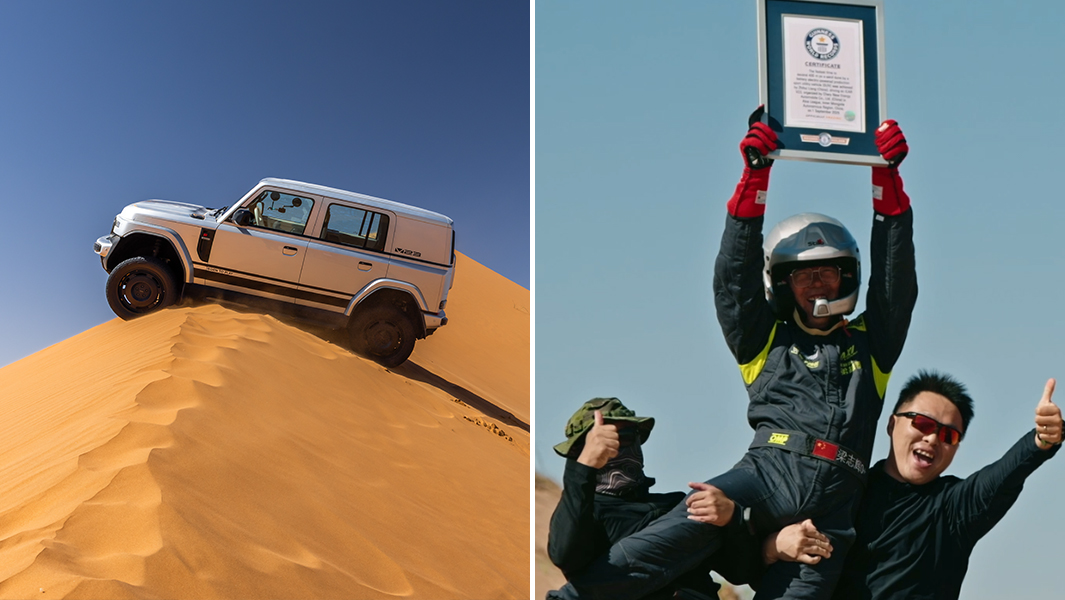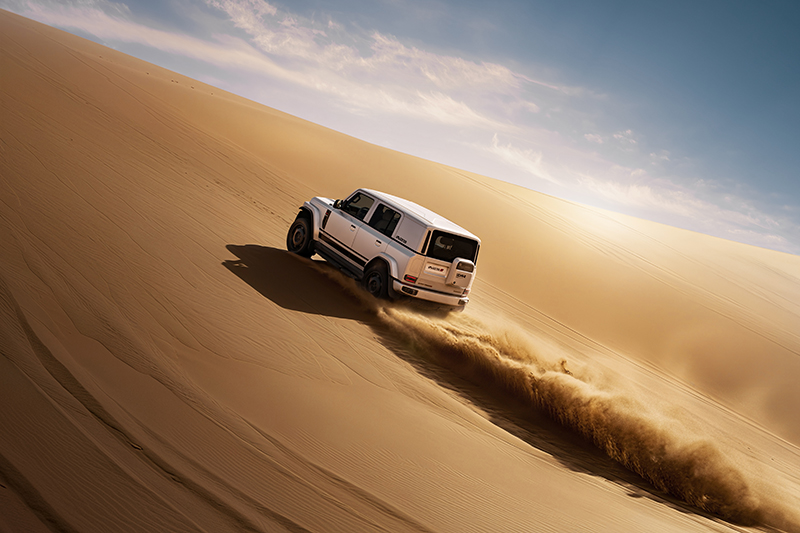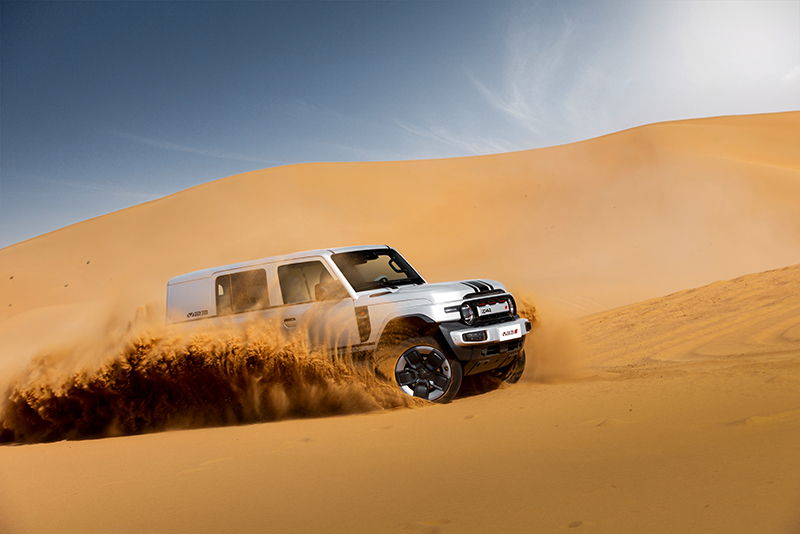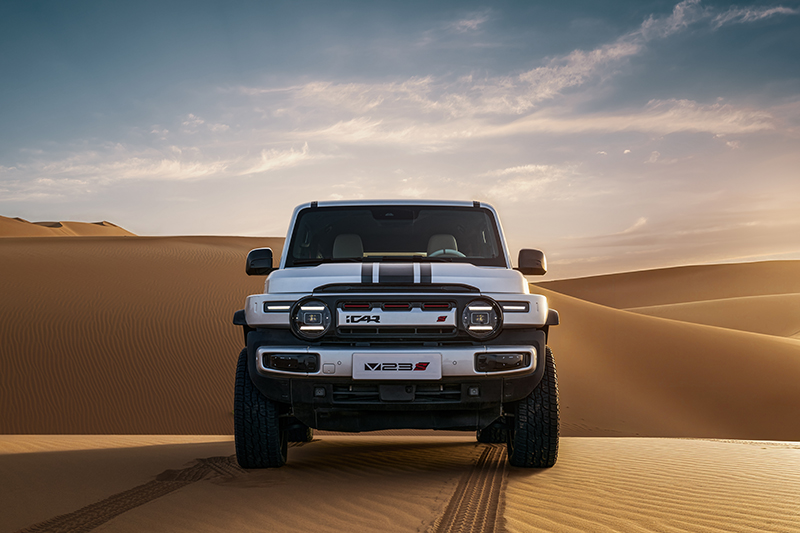iCAR Super V23 scales sand dune, the “Everest of the Desert”, in just over two minutes

On 17 September, a new chapter in extreme off-road driving was written at Bilutu Peak, Inner Mongolia, China – often called the “Everest of the Desert.”
The iCAR Super V23 scaled a 400-metre sand dune in just 2 minutes and 38.34 seconds, setting the Guinness World Records title for the fastest time to ascend 400 m on a sand dune by a battery electric-powered production sport utility vehicle (SUV).
More than just a test of speed, the run was a trial of engineering, traction, and resilience, against one of nature’s most unforgiving terrains.

Climbing Bilutu is not a simple desert drive. The dune stretches steeply upward, with shifting sand that threatens to swallow tyres whole. Competitors must follow a defined course to the summit without stalling, rolling back, or digging in – and any misstep means instant failure.
The Super V23’s dual motors, which generate 455 horsepower and 490 N-m of torque, kept it surging upward, while its i-AWD “Iguana” intelligent all-wheel drive system redistributed power in milliseconds to whichever wheel found grip in the moving sands.
Yet the real challenge lies in endurance. As the gradient steepens, vehicles face sustained strain on both powertrain and cooling. The Super V23 relied on liquid-cooled battery management and a six-in-one electric drive system to endure the desert heat, preventing power fade even at peak load.
Its 43° approach angle, 41° departure angle, and 210 mm ground clearance also gave it the physical tools to crest ridges and absorb sudden drops. A digital off-road display showing slope, tilt, and torque distribution, helped the driver stay in control through each critical second.

Beyond the stopwatch, the achievement carries symbolic weight. Scaling a landmark like Bilutu has long been reserved for high-end off-road icons or purpose-built racing machines. By conquering it with a mass-production electric SUV, iCAR demonstrated that extreme off-road experiences are no longer the privilege of the few. The record suggests a future where more drivers may taste the tension of climbing dunes or escaping deep sand, whether in professional challenges or recreational desert expeditions.

From the base to the peak, 2 minutes 38.34 is more than just a time. It captures a dialogue between human determination, machine capability, and the shifting desert itself. And while the iCAR Super V23 now holds the Guinness World Records title, the true story lies in what it represents – that new frontiers of driving are opening up, where electric SUVs can push the limits of performance and invite more people to take part in the adventure of the extreme.


